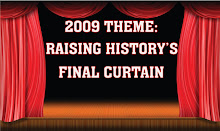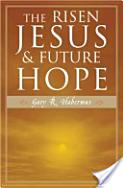In a previous article, What is Truth? An Introductory Study posted on March 27, it was demonstrated that relativism is self-defeating and that absolute truth does exist. Despite proving that competing beliefs are possible and that competing truths are not possible, the nature of truth itself has yet to be clearly defined.
In philosophy, questions regarding the nature of truth fall under the category known as epistemology. Precisely defined, epistemology is the study of the nature of knowledge and justification.(1) As such, epistemology endeavors to establish a framework from which one can construct genuine and accurate understanding. In addition, this branch of philosophy entails indentifying and developing criteria and methodologies for determining what we know and why we know it.(2) According to John Chaffee, author of The Philosopher’s Way: Thinking Critically About Profound Ideas, epistemology seeks to answer the following questions:
- Can we ever really know anything?
- How do we know when we don’t know anything?
- What is the difference between belief and knowledge?
- Is truth possible?
- Does truth evolve or is it unchanging?
- Can there be different “truths” for different people or is “truth” the same for all?
As one might expect, philosophers throughout history have offered many divergent answers to the questions raised above. Therein lies the conflicting viewpoints regarding the nature and knowability of truth.
As we have already seen, one can believe everything is true but one cannot make everything true. Tom Morris, author of Philosophy for Dummies, observes that human actions are a consequence of our beliefs interacting with our desires. Morris elaborates by presenting the following equation: Beliefs + Desires = Actions.(3) Beliefs are a well spring for action. Therefore, having right beliefs is not just a matter of intellectual importance, but it is of the utmost practical importance.(4) At this point the problem is clear: people hold and operate on the basis of false beliefs. One can sincerely believe and operate their daily life upon the assumption that the Earth is flat, but no matter how sincerely the belief is held, if it does not correspond to reality it is not true.
Clearly, truth must transcend belief. In short, people ought not want their most important beliefs to be mere opinions: real knowledge is what all rational people desire. This of course raises the question of what is knowledge. Professor Morris offers the following definition, Knowledge=Properly Justified True Belief.(5) While belief is necessary for knowledge, belief alone is not sufficient for knowledge. In others words, in order for someone to possess knowledge of anything, their beliefs about the item in question need to be true. For example, one can not know something to be true unless it is. Similarly, one can not know something unless it is not false. Got it?
In order for one to possess true knowledge, their beliefs about the idea or item in question must correspond to reality in order to be true and thereby result in real knowledge. All of this proves the necessity of the correspondence view of truth which teaches that truth must correspond to its object. However, truth can be understood both from what it is and what it is not, according to Norman Geisler.(6) Hence before turning our attention to what truth is it is prudent to consider what truth is not.
Truth Is Not “That Which Works”
Many people believe that truth is found in utility or what works. Philosophically, those who hold this view are known as Pragmatists. Pragmatism asserts that knowledge is a form of practical involvement. In other words, “Knowing is something we do, and is best seen as a practical activity. Questions of meaning and truth are also best understood in this context.”(7) Pragmatist William James summed up his position when he wrote, “truth is the expedient in the way of knowing.”(8) Thus, a statement is known to be true if it brings the right results according to Pragmatism.
Geisler outlines the following inadequacies regarding the pragmatic approach to truth. Pragmatists desire that one accept their view of truth not because it seems to be effective but because it corresponds with the way they believe things actually are.(9) Consequently, one is required to utilize the correspondence view of truth even when asserting that correspondence is incorrect. Does this sound like a self-defeating argument?
Truth Is Not “That Which Feels Good”
A second commonly held and equally inadequate view of truth is propagated by the Subjectivist. Supporters of this position argue that “truth is what provides a satisfying feeling, while error is what feels bad.”(10) Thus truth is found in our subjective feelings, according to this form of subjectivism. Many involved in New Age Mysticism view truth in this manner.
Like the Pragmatic view, the Subjective view is self-defeating. The statement, “what feels good is true is so only if it corresponds to the way things are,” once again presupposes the accuracy of the correspondence view of truth. In reality, Subjectivism defines truth not by what feels good but if it corresponds to the facts of the matter in question.(11) Second, it is readily apparent that bad news which makes us feel bad can be true. However, if what feels good is always true why don’t my students feel good when they receive poor report cards? How does that old saying go? The truth hurts.
Furthermore, feelings are relative to individuals. Therefore, what feels good to one might not for another. Is truth how one is to account for these subjective differences? If so, then truth would be relative, however, it has already been demonstrated in a previous posting that relative views of truth are self-defeating. Finally, even if one could equate truth with what feels good, one cannot be convinced that what feels good is necessarily true.(12) “The nature of truth is not the same as the result of truth.”(13)
Pragmatism and Subjectivism are not the only challenges to the correspondence view of truth; however, they are the most prevalent and popular. Therefore, for brevities sake they will be the only ones discussed in this posting. For further discussion on what truth is not, the author recommends Chapter Seven of Systematic Theology Volume One by Dr. Norman Geisler.
In the next posting the correspondence view of truth will be considered along with its philosophical and Biblical justifications. Stay tuned.
Footnotes:
1) John Chaffe, The Philosopher’s Way: Thinking Critically About Profound Ideas (Upper Saddle River, NJ: Pearson, 2005), 415.
2) Ibid., 415.
3) Ron Morris, Philosophy for Dummies (New York, NY: Wiley Publishing, 1999), 43.
4) Ibid., 43.
5) Ibid., 45.
6) Norman Geisler, Systematic Theology Volume One (Minneapolis, MN: Bethany House, 2002), 110.
7) Bryan Magee, The Story of Philosophy: The Essential Guide to the History of Western Philosophy (New York, NY: DK Publishing, 1998), 183.
8) Geisler, Systematic Theology Volume One, 110.
9) Ibid., 110.
10) Ibid., 113.
11) Ibid., 113.
12) Ibid., 113.
13) Ibid., 113.


























No comments:
Post a Comment